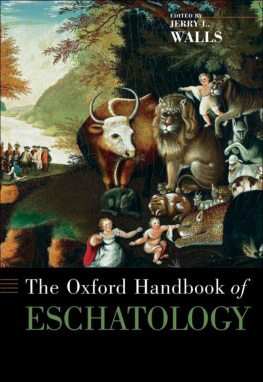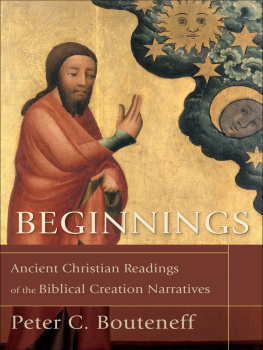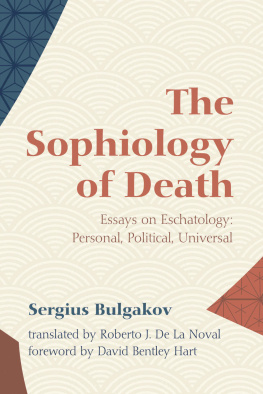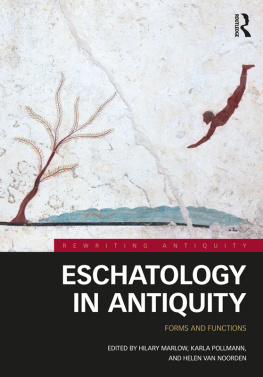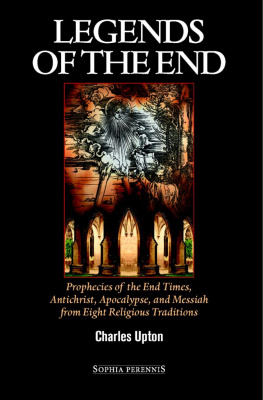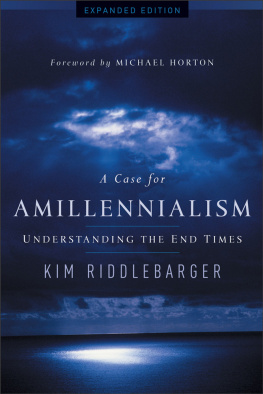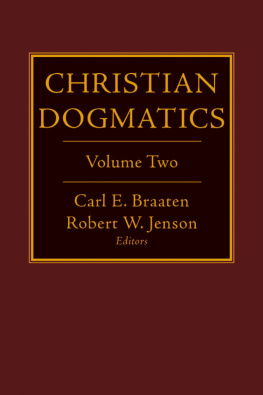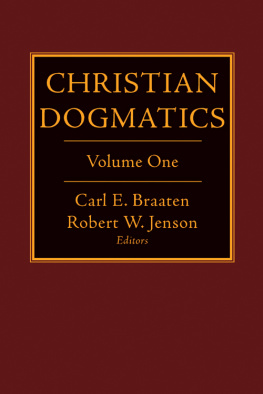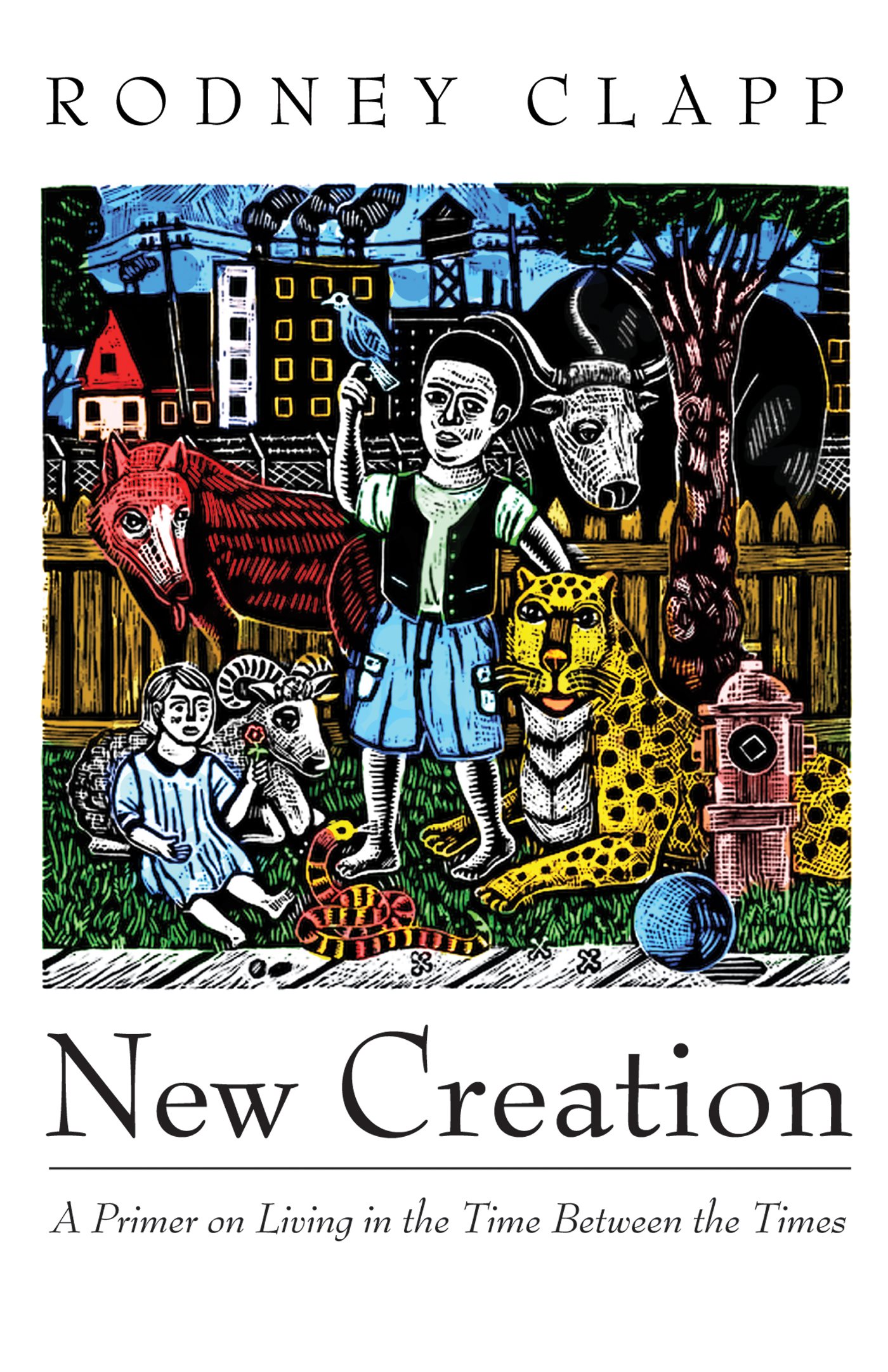What I love about Clapps book New Creation is that he succinctly brings together a host of fellow travelers in dialogue with all of Scripture to dispel any notions that eschatology is merely about what happens in the end. In fact, what makes this book essential for disciples of Jesus is what Clapp does to help us see the implications of eschatology for our lives now in everything from sex to politics, climate change to Black Lives Matter, and all else that has to do with contemporary life. He accomplishes what he sets out to doto demonstrate that eschatology is the key to understanding the biblical story into which we have been baptized.
Dennis Okholm Azusa Pacific University, Author of Learning Theology through the Churchs Worship
Rodney Clapp has done it again. He has paired a rigorous Eschatological Imagination with the ambiguities of apocalyptic times. His insistence on humans being story manufacturers who are desperate to experience and interpret those stories is not a new revelation, but his amplification of the critical importance of narrative is noted and appreciated. Combining insights from popular culture, Scripture, Church History, with a Pacifist Kingdom Theology, Clapp issues a primer that instructs and inspires. More than a standard operating primer, he has proposed a guide for the perplexed and a manifesto for flourishing in manically disturbed times. As one who has recently been through the valley of the shadow of death, I found reading New Creation a witness to the Good News generating life in the ruins and signposts in a strange land (Walker Percy). This is theological reflection that is both richly informed and eminently accessible.
Introduction
T he end is in the beginning. The farmer sows with the expectation of harvest. The carpenter lays a foundation with the whole and complete house in mind. The woman conceives a child with birth as the prospect. The journey begins with a destination in sight, at least in the minds eye. Every morning, we leave our beds because we have projects beckoning us. We are storied creatures, and everything happens because we lean toward endings. These endings are the goals, the pursuits, the destinies, the termination points that mark and animate our lives. Without endings we could never begin anything. We would lack plots and our lives would be without purpose, devoid of meaning.
No wonder, then, that we are fascinated by stories. We like to rehearse a multitude of beginnings and endings. Some we try on for size, determining if they fit or might even transform the nonfictional story-project that is our life. Currently our culture is obsessed with zombie stories. Zombies by the hundreds shamble across our movie and television screens. They populate the pages of bestselling books and figure prominently in video games. Why do these stories resonate so much that we seem unable to get enough of them? And what sense of ends or endings do they bear?
I have three theories, not necessarily mutually exclusive.
The first is that zombie stories speak to our concern and dread of overpopulation. In the premodern world people interacted with a handful of persons in a typical day. And they knew most of those persons well. By comparison, we interact every day, face-to-face with dozens of office mates, cashiers, food servers, pedestrians, and so forth. Many of these we will never see again, let alone know by name. Add to that social media and the circles of hundreds (even thousands) of friends or followers, better or lesser known, that we encounter through voluminous posts or tweets. On television we see dozens more faces, many barely registered. Add to this the fact that we are informed that the world groans under the weight of levels of human population unprecedented in human history. Population levels strain food resources and pollute the skies and waters of our cities. And our actual and virtual interaction with so many people constantly reminds us of these daunting facts.
Almost in every waking moment, then, we sense that there are so many of us, and worry if the world can sustain us. Thus we feel overrun with peoplelike the mindless zombies, they come at us in overwhelming hordes. The zombie stories touch a nerve. And they touch a nerve related to overpopulation: the issue of immigration. Here we see a sense of an ending that the zombie stories offer. If we already feel overwhelmed, we may not welcome the influx of new citizens, especially if they seem different or other than us. Still they seem to come and keep coming, crossing borders in a flood. Like the zombie hordes, they can only be stopped by walls. So an ending offered us is that we keep the zombies/immigrants out by constructing walls. Zombie stories resonate with the fear of immigration and the mood of wall-building. Thus it was no accident that the immigrant-averse presidential candidate, Donald Trump, in 2016 found it especially effective to place ads with the demographic watching the enormously popular zombie program The Walking Dead .
My second theory has to do with consumer capitalism. Especially since the 1990 s, consumerism has been unleashed in North America and across the world. While capitalism had formerly concentrated on production, it now focuses overbearingly on consumption. Without massive and daily consumption, the consumer capitalist economy would collapse. Accordingly, whereas the hunter-gatherer consumed , kcals per day from foraged and hunted food, the average modern Westerner consumes , kcals per daymainly from coal, oil, and gas sources.
Moreover, the consumer capitalist economy schools us to consume not only natural resources, but everything else besides. Tourism and other experiences have been monetized and commodified. We consume astounding amounts of media. We have come to see populations not as citizens, but as consumers. We imagine ourselves no longer as patients of doctors, but as healthcare consumers. Those sitting under teachers in our colleges are treated not so much as students as education consumers. We establish friendship networks to advance our careers and enhance our earnings, and so we relate to friends as objects of our consumption. Once I bumped into an acquaintance and we fell into conversation. I asked him where he was now worshiping. He was in the process of changing churches. You know, he said casually, the average church has a shelf-life of only about three years. The end here is to become consumers of everything and everyone we encounter.
Yet with this ending we relate, uncomfortably, not with the heroes who struggle to survive and hold off zombies, but with the zombies themselves. Like the zombies, we consume everything in our paths. We are often not mindful consumers, but, again like the zombies, almost mindless and soulless in our relentless devouring. Perhaps we are less content with omni-consumption than first appears. Among other things, we know that nature cannot endlessly bear the load of modern Western levels of consumption. We also yearn to be something more than consumersto be citizens, to be friends of creation, even to be Christians (or Muslims, or Jews, or Buddhists) first and foremost, with all that entails. In other words, we are not entirely at ease with our basic identity as consumers. The zombie stories help us grapple with this sense of dis-ease, and name our condition as more dire than we might like to imagine.


